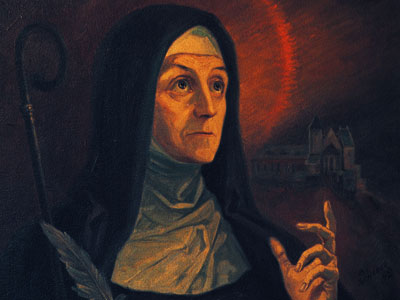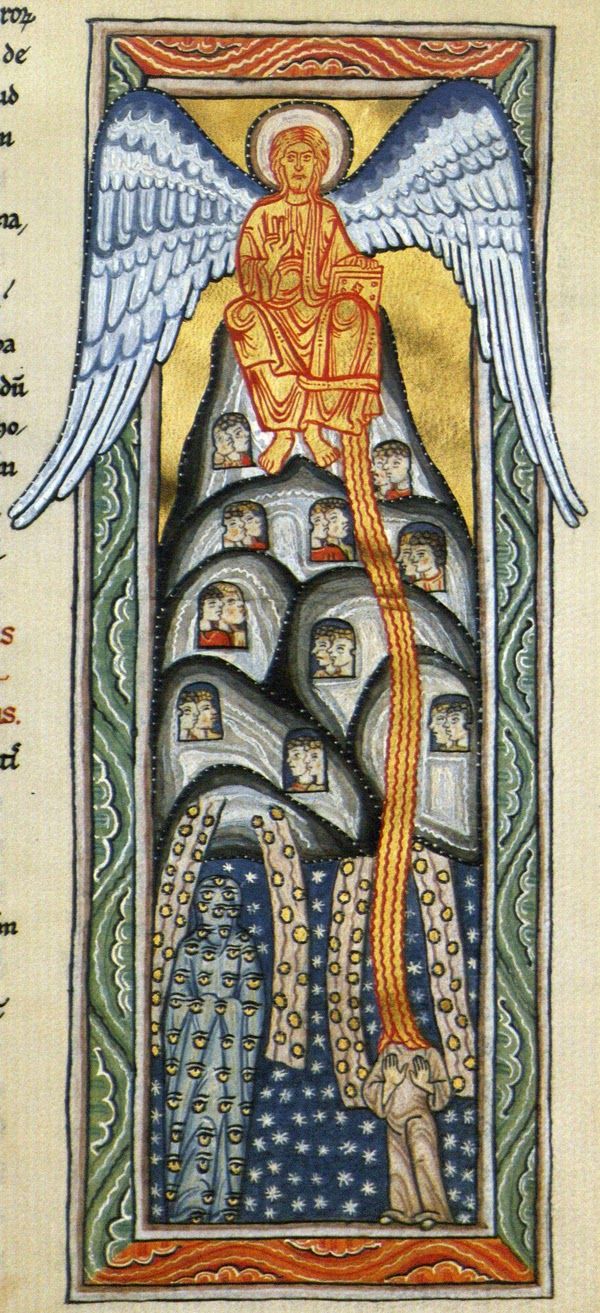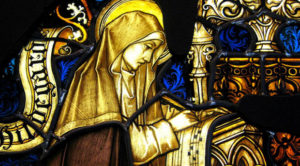Podcast: Play in new window | Download (Duration: 30:14 — 20.8MB) | Embed
Subscribe: Apple Podcasts | Spotify | Amazon Music | Android | Pandora | iHeartRadio | JioSaavn | Podchaser | Gaana | Podcast Index | Email | TuneIn | Deezer | Anghami | RSS | More
 Dr. Lilles continues the spiritual explorations of the Letters of St. Elizabeth of the Trinity. This episode is part 2 of our conversation on letter 214, with a special focus on suffering and humility united to Christ in our prayer:
Dr. Lilles continues the spiritual explorations of the Letters of St. Elizabeth of the Trinity. This episode is part 2 of our conversation on letter 214, with a special focus on suffering and humility united to Christ in our prayer:
L 214
To Abbé Chevignard
[November 29, 1904]J. M. + J. T.
“Providebam Dominum in conspectu meo semper; quoniam a dextris est mihi, ne commovear.”
Monsieur l’Abbé,
I am very grateful to you for your feastday wishes, and I am very happy the Church has placed our saints so close to each other, because that gives me the chance to offer you my best wishes today. Saint Augustine says that “love, forgetful of its own dignity, is eager to raise and magnify the beloved: it has only one measure, which is to be without measure.” I am asking God to fill you with that measure without measure, which is to say, according to the “riches of His glory,” that the weight of His love may draw you to the point of happy loss the Apostle spoke of when he wrote “Vivo enim jam non ego, vivit vero in me Christus.” That is the dream of my Carmelite soul and, I believe, also the dream of your priestly soul. Above all it is the dream of Christ, and I ask Him to accomplish it fully in our souls. Let us be for Him, in a way, another humanity in which He may renew His whole Mystery. I have asked Him to make His home in me as Adorer, as Healer, and as Savior, and I cannot tell you what peace it gives my soul to think that He makes up for my weaknesses and, if I fall at every passing moment, He is there to help me up again and carry me farther into Himself, into the depths of that divine essence where we already live by grace and where I would like to bury myself so deeply that nothing could make me leave. My soul meets yours there and, in unison with yours, I keep silent to adore Him who has loved us so divinely.
I unite myself to you in the emotions and profound joys of your soul as you await ordination and beg you to let me share in this grace with you: each morning I am reciting the Hour of Terce for you so the Spirit of love and light may “come upon” you to bring about all His creative work in you. If you would like, when you recite the Divine Office we could unite in the same prayer during this Hour that I have a particular devotion to. We will breathe in love11a and draw it down on our souls and on the whole Church.
You tell me to pray that you may be granted humility and the spirit of sacrifice. In the evening, while making the Way of the Cross before Matins, at every outpouring of the Precious Blood I used to ask for this grace for my own soul; from now on it will also be for yours. Don’t you believe that, to achieve the annihilation, contempt of self, and love of suffering that were deep in the souls of the saints, we must gaze for a very long time at the God crucified by love, to receive an outflowing of His power through continual contact with Him? Père Vallée once said to us that “martyrdom was the response of any lofty soul to the Crucified.” It seems to me that this could also be said for immolation. So let us be sacrificial souls, which is to say, true in our love: “He loved me, He gave Himself up for me!” A Dieu, Monsieur l’Abbé. Let us live by love, by adoration, by self-forgetfulness, in wholly joyful and confident peace, for “we are Christ’s, and Christ is God’s”! . . .
Sister M. Elizabeth of the Trinity r.c.i.
On the 8th, we are going to give our Immaculate Mother and Queen a beautiful feast day in our souls; I will meet you under her virginal mantle.
Catez, Elizabeth of the Trinity. The Complete Works of Elizabeth of the Trinity volume 2: Letters from Carmel (pp. 179-180). ICS Publications. Kindle Edition.

Special thanks to Miriam Gutierrez for her readings of St. Elizabeth’s letters
For other episodes in the series visit
The Discerning Hearts “The Letters of St. Elizabeth of the Trinity” with Dr. Anthony Lilles’
Anthony Lilles, S.T.D. is an associate professor and the academic dean of Saint John’s Seminary in Camarillo as well as the academic advisor for Juan Diego House of Priestly Formation for the Archdiocese of Los Angeles. For over twenty years he served the Church in Northern Colorado where he joined and eventually served as dean of the founding faculty of Saint John Vianney Theological Seminary in Denver. Through the years, clergy, seminarians, religious and lay faithful have benefited from his lectures and retreat conferences on the Carmelite Doctors of the Church and the writings of St. Elisabeth of the Trinity.








